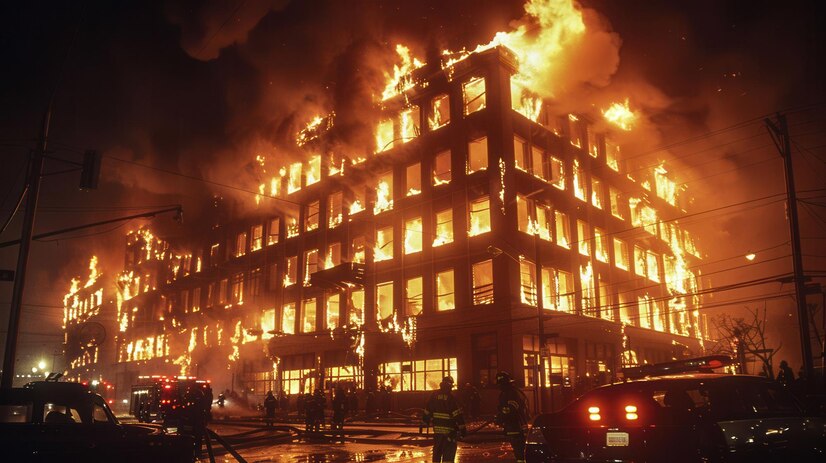Case Overview:
A tragic incident occurred at Hotel Lucky India during a business tour, where a guest, along with two others, lost their lives due to a fire. The deceased had booked an air-conditioned room for two days. Unfortunately, the fire, caused by a short circuit, led to fatal burn injuries and asphyxiation.
Legal Standpoint:
The Opposite Party (Hotel Lucky India) contended that the complaint was not maintainable, claiming that the complainants were not consumers under the Consumer Protection Act. However, Section 2 (1) (o) of the Act defines “service” to include boarding and lodging, clearly classifying the deceased as a consumer. As such, the heirs and dependants of the deceased were considered consumers under Section 2 (1) (d) of the Consumer Protection Act, 1986.

Court’s Decision:
The case hinged on several points:
- Negligence Allegations:
The hotel argued that the deceased contributed to his own death through negligence. The claim was that the victim, being in a deep sleep, did not respond to the alert given by hotel staff for an immediate exit. The court dismissed this argument, noting that it is normal for hotel guests to be asleep at 4:00 a.m. - Electrical Safety Concerns:
The fire was traced back to a short circuit. The hotel failed to prove that they had used electrical wiring and other equipment of the necessary standard. Additionally, the hotel lacked basic safety features, such as smoke detectors, and their staff were not trained in using fire extinguishers. - Maxim of “Res Ipsa Loquitur” Applied:
The court applied the principle of “res ipsa loquitur”, meaning “the thing speaks for itself.” This maxim suggests that the very nature of the incident implies negligence, without needing further evidence. The death of the deceased due to the fire and the lack of adequate safety measures by the hotel constituted a clear case of service deficiency.
Conclusion:
The court ruled in favor of the complainants, confirming that the hotel was indeed negligent. As a result, the complaint was allowed, and compensation was awarded to the heirs of the deceased.
Key Takeaways:
- Hotels are obligated to maintain safety standards, including proper electrical equipment and fire prevention measures.
- Consumers are entitled to protection under the Consumer Protection Act, 1986, for deficiencies in service, including negligence that leads to loss of life.
- The principle of “res ipsa loquitur” can be invoked in cases where negligence is evident from the circumstances of the event.
Final Verdict:
The deficiency in service by Hotel Lucky India directly contributed to the tragic deaths, resulting in compensation being awarded to the deceased’s family.



